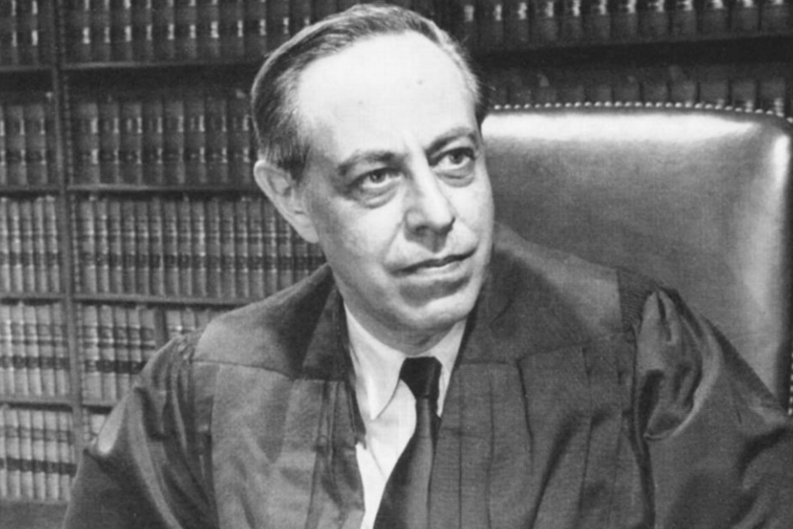Historical Profile: Jerome N. Frank


Jerome N. Frank was “one of the most prominent lawyers and legal intellectuals of his time,” according to Chancellor Kent Professor Emeritus of Law and Legal History Robert W. Gordon. Frank launched the Legal Realism movement with his book, Law and the Modern Mind. He subsequently was a regular instructor at Yale Law School, which, along with Columbia Law School, was a major proponent of this school of legal thinking.
Frank was born in New York City in 1889 and spent most of his childhood in Chicago. He studied psychology and political science at the University of Chicago where he graduated Phi Beta Kappa in 1909. He would later graduate from the university’s law school in 1912 with the highest grades on record.
It was during his undergraduate years that he would meet Charles Edward Merriam, a professor who became known for founding the behavioral approach to political science. Frank studied under Merriam while at the University of Chicago and would briefly work for him when Merriam was serving as an alderman.
After graduating from law school, Frank worked for large corporate law firms in Chicago and New York. In 1928, he underwent an intensive, sixth-month-long psychoanalysis that would inspire him to write his groundbreaking book, Law and the Modern Mind.
The book, published in 1930, sparked the legal realism movement which came to define the Law School and broader legal community’s approach to the study and practice of law. It also secured Frank a research appointment at Yale in 1932, where he was friends with faculty members William O. Douglas and Thurman Arnold ’48, as well as a lecturer position at The New School for Social Research in New York City.
In 1933, Frank was appointed as General Counsel of the New Deal’s Agricultural Adjustment Administration by Franklin D. Roosevelt and then in 1937 to the Securities and Exchange Commission.
Frank was appointed as a judge on the United States Court of Appeals for the Second Circuit in 1941, a position he would hold until his death in 1957. His later years were also spent teaching at Yale Law School and The New School for Social Research. His legacy lives on at Yale Law School through the Jerome N. Frank Legal Services Organization (LSO) — the Legal Aid Bureau that was renamed in his honor in the year of his passing — which provides legal services to those who otherwise can’t afford representation.
In an issue of the Yale Law Report published shortly after Frank’s death, Fred Rodell '31 — a Yale Law School professor and alumnus — wrote, “[Jerome knew] — as so few scholars do — that a lot of learning can be a deadening thing if it is stored or caged in some academic attic instead of set free to lend fresh insights to the world. This is the most — and the least — we should learn from him. And the finest tribute we can pay his memory is not the solemn if unavoidable memorial service (how he would have winced at it) nor even the gesture (this would have pleased him) of giving the Legal Aid Society his name. It is rather to keep the Yale Law School as effervescent with live ideas as it was in the days when Jerry Frank was on one end of the log — and all the lucky rest of us on the other.”


